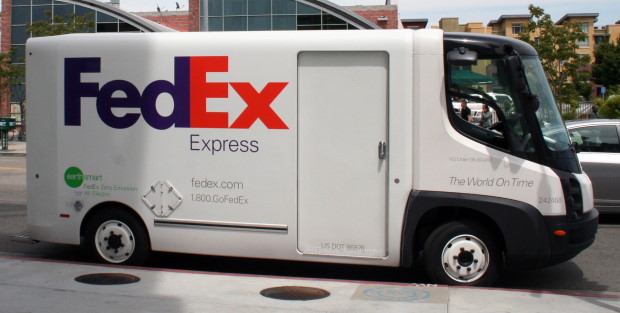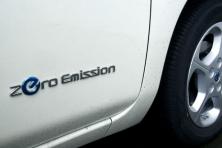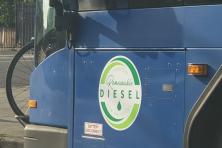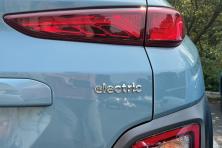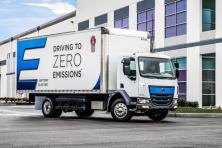While commuters have noted a decrease in congestion, cargo or heavy truck volumes have remained steady and have actually increased at points during the pandemic. This is of no surprise to residents living next to heavily trafficked truck corridors such as Portland’s Cully neighborhood, whose community organizations such as Verde and Living Cully have been organizing and advocating for community benefits such as air quality improvement. This increase in the amount of cargo trucks driving through our neighborhoods, exposes our communities to more toxic diesel pollution being spewed into our air, neighborhoods and atmosphere.
Although heavy duty vehicles comprise 10 percent of all vehicles on the road, they account for nearly 25 percent of total U.S. climate pollution from transportation, and 45 percent of NOx emissions (nitrous oxide; a greenhouse gas roughly 300 times more harmful than carbon dioxide). Not only does Multnomah County rank among the worst counties in the U.S. for diesel exhaust, toxic diesel pollution is disproportionately concentrated in low-income and communities of color like our own Cully neighborhood. Due to racist public policies like urban renewal districts, redlining, and inner-city highway construction, toxic concentrations of diesel pollution like the high amounts found in busy trucking corridors, bus depots, distribution hubs, and seaports disproportionately affect low-income and communities of color. Despite some climate progress, pollution from Oregon’s transportation sources have been increasing year after year with Oregon’s transportation sector now comprising over 40% of our state’s total global warming pollution.
This is why our state needs to prioritize every tool to clean up the delivery trucks, transit and school buses, big rigs and other vehicles that make up the medium and heavy duty transportation sector. Getting zero-emission trucks on the road is a public health imperative and has been a decades-long priority of environmental justice advocates. Replacing dirty diesel-powered trucks with their zero-emission counterparts can clean the air we breathe, reduce climate emissions, and create green jobs.
Thankfully, there is a near-term opportunity for Oregon to leap forward toward a zero emission truck future. In June 2020, the California Air Resources Board unanimously passed the Advanced Clean Truck (ACT) Rule, the nation’s first electric truck sale standard. CA’s ACT rule would not have been possible without the hard work of California organizations representing environmental justice, health organizations, labor, and environmental groups, coalescing for stringent regulations and meaningful targets to deliver clean air, reductions in climate pollution, improved labor standards and new jobs for pollution-burdened communities and communities throughout California.
Shortly after the adoption of California’s ACT rule, Oregon Governor Kate Brown and fourteen other state governors signed a memorandum of understanding committing their states to accelerate the adoption of medium and heavy duty zero-emission vehicles. Thanks to the Oregon Climate Action Plan (a.k.a Executive Order 20-04), the Department of Environmental Quality has committed to take the first step to make this commitment a reality by adopting an electric truck sale standard for Oregon. The DEQ process could result in this rule passing in 2021.
In our own backyard on Swan Island in Portland, Daimler has been manufacturing electric trucks for this new future. Daimler—one of the world’s largest vehicle manufacturers—announced in 2019 that they are no longer developing new diesel- or gasoline-powered engines, instead focusing their R&D resources on electric vehicle technologies. With Daimler focused on electric vehicle manufacturing, opportunities such as workforce development and apprenticeship programs could be explored as a way to pave the road for much needed clean energy jobs right here in Oregon.
We must take advantage of this moment to begin electrifying medium and heavy duty trucks and continue fighting for diesel pollution regulations. Through these goals we will secure the air quality improvements our communities seek, reduce our greenhouse gas emissions all while ensuring a green and just economic recovery.
